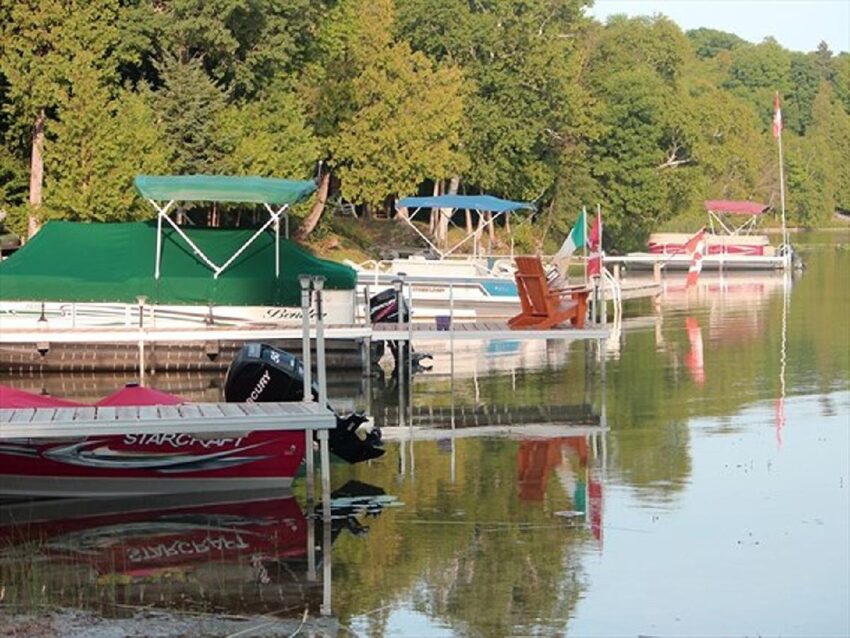Kawartha Lake council will make a decision on the regulation of short-term rentals at their upcoming April 18, 2023 meeting. On the table is a staff recommendation to implement an annual licensing program including enhanced insurance and inspection requirements, fees, maximum capacity limits and a demerit point system.
There are four options on the table for consideration based on five years of research, public consultation and data tracking. The recommended option for implementation is an STR licensing bylaw incorporating the current service fee and education system with a new licensing system requiring STR owners to pay an annual licensing fee, meet enhanced insurance and inspection requirements alongside increased enforcement options, a demerit point system, and a licence suspension and revocation process as well as an appeal system for owners. The proposed annual licensing fee is $300 for a hosted site where a property owner lives on-site, or $1,200 for an unhosted rental.
“It will hold owners directly accountable for the operations of their businesses,” Aaron Sloan, manager of municipal law enforcement and licensing, told council, adding that it also puts the onus on STR owners to fund the licensing program and enforcement, estimated at $400,000 annually, without passing that burden along to the taxpayer.
An STR licensing system would also include a maximum occupancy limit of two renters per bedroom and a requirement of a 30-60 minute response time for the property owner or manager.
The number of short-term rentals in Kawartha Lakes has spiked in recent years to more than 1,000 in March 2023. City data found STRs account for 88 per cent of the City’s tourism accommodation.
Among the points used to prop up STRs in Kawartha Lakes are contributions to the local economy and job creation as often local contractors are used for maintenance, cleaning and landscaping at the rentals.
In 2022, municipal law enforcement received a total of 138 complaints regarding 53 short-term rentals in Kawartha Lakes, according to Sloan’s data.
STR owner Darl Crick questions why STRs, which made up about six per cent of total complaints made to bylaw in 2022, are being targeted for regulation when they represent such a small portion of overall complaints. He suggests if STRs are to face increased regulations and rules, so too should all properties.
Many hosts expressed the importance of STRs for the cottage economy at the meeting, predicting that the more difficult local policy makes it for those who rent or provide rental opportunities, the more likely those critical tourism dollars will simply go elsewhere.
Although many deputants agreed with the concept of regulation through licensing, they were concerned the proposed annual fee of $1,200 for all “unhosted” short-term rental owners was too steep a price, citing other municipalities have much lower fees in the range of $200 to $300.
Ward 1 councillor Emmett Yeo also questioned the definition of “unhosted,” noting that owners who live nearby or have a property manager who could respond inside of 10 minutes, surely shouldn’t be lumped in with absentee owners. Yeo also questioned whether staff had considered licence exemptions for STRs so remote as to eliminate the possibility of disturbing neighbours, or how property owners who only ever rented out to friends and family would be impacted.
Sloan acknowledged that the proposed STR regulation does paint all STRs with the same brush.
Additional options considered by City staff include keeping the current short-term rental system as is, with bylaw officers enforcing existing nuisance bylaws, charging service fees for complaint response and investigations, implementing an area-specific short-term rental prohibition bylaw, or regulating short-term rentals through zoning regulation.
Ward 7 councillor Charlie McDonald added that, in his opinion, the problem of nuisance STRs won’t be addressed until the hours bylaw officers work are expanded.
The staff report will be brought forward to a continuation of the committee of the whole meeting April 18 in the morning for further discussion. Council will vote on the report recommendations at its next council meeting April 18 in the afternoon.
If council votes to follow staff recommendations with a licensing bylaw, City staff can begin to start hiring of four additional people in bylaw, commence a soft public rollout including a major education component, website updates and finalization of licensing application and processes throughout the month of May. The report notes implementation of the program would cost more, with additional funds to be taken from contingency reserve, but is expected to break even by 2024, and expected to eventually have a surplus.
Under the proposed plan, the STR licensing system would be fully implemented by January 2024.

